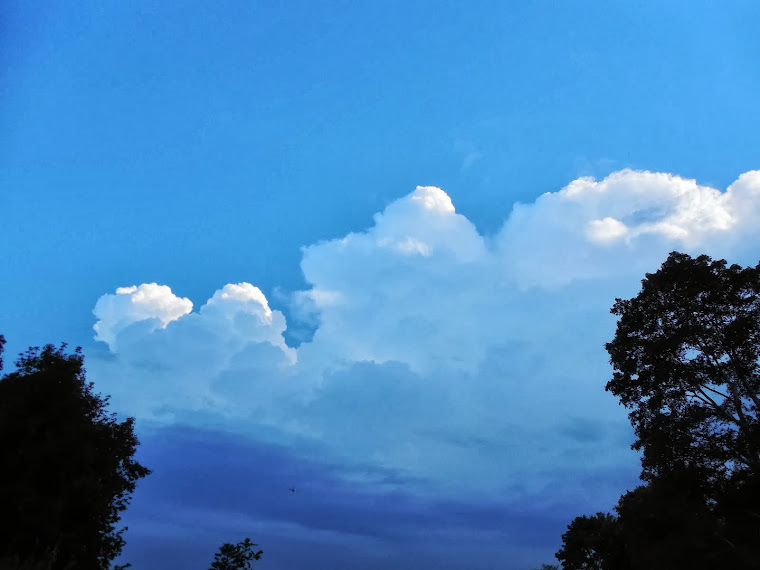Spring brings with it so many charms -- rampant green lawns, gardens, trees in full leaf. To me, one of the biggest changes in my behavior at this time of year, besides long, after dinner walks with the dogs around the creek, is the impulse to linger outside at night, especially before the onslaught of mosquitos.
I've gone on enough camping trips and stirred early enough in my bed to hear the roar of birdsong as the sun rises. It's a cacophany that begs the question: How can anyone possibly sleep past 6 am with this racket going on?
At night, there's certainly a full symphonic blast beaconing, but the songs are different. First, the earth smells different than it does during the day. After dusk, it's impossible not to inhale the growth of plants as they have plowed upward, spurred by hours of eating the light. This intoxicating scent is heightened with a tinge of dampness, a whiff of the bog. The color equivalent would be an emerald green doused with a dusting of chocolate brown.
Standing there, looking into the inky depths of the meadow, an endless night sky freckled with stars, the sounds come. The peepers who began their serenades in March are still in full song, though their volume is now tamped down with hundreds of other sounds.
I can hear the complaint of geese as they settle in amongst the hay of the back field. Little chirps of birds up past their bed times. The wind kicking up waves in the tops of the long grasses. A continuous murmur of birdsong, more like bird mumbles, peeps and calls...Perhaps the comforting salve of birds calming their nestlings? Sometimes, it sounds like a jungle...throaty declarations of toads, coos of doves, a myriad mash up of messages on waves of the lower frequency.
It's an alluring concert. A call of the wild, a reminder of the endless spin of the planet into a new season, flush with growth and procreation.
Like the fleeting blooms of forsythia, the bridal bush, tulips...these nights race by. Later on, the lightning bugs dance above the meadow, the bobolinks talk past sundown, the robins tend to their second broods. The dampness of the earth, drenched in spring showers, is replaced by the sodden summer air.
